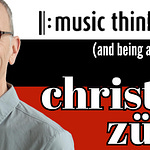In our recent BetaCodex LIVE session, Niels Pflaeging and I had the distinct honor of welcoming back citizen, author and social philosopher (!) Peter Block to discuss his latest book "Activating the Common Good." Our conversation revealed several connections between Peter's work and the 12 Laws of the BetaCodex, offering insights into community and organization transformation.
A guide to key moments
04:00 Why This Book Matters
"I decided to write this book because I was so frustrated with how futile the transformation efforts are in our communities."
Peter explains how traditional transformation approaches fail to create fundamental change and expresses desire to normalize relational practices beyond retreats and special events.
The primary aim of the book: Making the common good central, with market economy as "an interesting side venture".
BetaCodex Connection: Law 4: "All-around success" a shift from mono-maximization of business metrics (i.e. “shareholder value”) to comprehensive fitness across multiple dimensions of wellbeing.
08:00 Cause and Effect: From Consumers to Producers
"This is about the difference between purchasing a solution and producing a solution… consuming versus creating… [or the mindset of], “I need the social services to fix me. I'm not good enough, I'm poor." - Rijon
Peter and Rijon articulate the distinction between "purchasing a solution versus producing a solution"and how professionalization creates dependency on external expertise as opposed to local knowledge.
How the shift from a consumer to a producer mindset creates agency.
BetaCodex Connection: Law 1: "Team autonomy" and the concept of Social Density - creating conditions where people choose shared accountability, becoming the "cause” of value creation, rather than an “effect” of managerial control.
12:00 The Business Perspective vs. The Common Good Narrative
"We have way overstretched the business or commercial mindset and are trying to solve problems with this. That kind of thinking that cannot be solved with that… [It] can only be solved with the common good mindset." - Niels
Niels articulates how the business perspective has invaded domains where it doesn't belong.
Peter uses his "Uncle Gene" metaphor to illustrate proper place of business thinking.
How education, healthcare, and other social domains require a different frame
BetaCodex Connection: Law 11: "Resource discipline" - a shift from on status-oriented control to value-based expedience, better serving the collective wellbeing.
16:00 Peter's Vision of Relational Activism
"Traditional activism is thinking legislation will do it. Policy will do it. A change in leadership will do it. The relational activism - let's pay attention to our peers, my neighbors..."
Peter describes attending a poverty conference where 250 passionate people never engaged with each other.
Rijon connects this to the idea of moving from spectators to initators of change. Be the player on stage, rather than a member of the audience.
BetaCodex Connection: Law 12: "Flow coordination" - creating value through dynamic relationships rather than static allocations of resources and responsibility.
27:30 The Power of Language
"To call somebody poor is to declare them broken... call them economically isolated. Now I know what to do. I need to end their isolation."
Niels praises Peter's precise language and down-to-earth approach in the book
Rijon highlights the Sigmund Freud quote: "The person who first hurled a word founded civilization" - from Peter’s A Small Group project - and it’s related booklet.
Peter shares how reframing "poverty" as "economic isolation" can fundamentally transform our intervention approach.
BetaCodex Connection: Parallels the differences in BetaCodex language choices (like "leaderships" vs. "leadership") that create new possibilities for organizing.
39:40 Block and the BetaCodex
"Almost every one of the... it is such an alignment between Peter, between your work and the 12 principles. I mean, I could read them off. And you could speak that they, each of one, each one of them speaks to, to about agency and confronting freedom and account shared accountability." - Rijon
Rijon articulates in detail how Peter's work aligns with several of the BetaCodex principles, as well as a specific explanation of "mono-maximization versus all-around success" principle.
How both consulting approaches embody a holistic (whole-system) approach as opposed to a single-point optimization focus.
BetaCodex Connection: Law 4: All-around success vs. mono-maximization- how holistic approaches like BetaConsulting and Flawless Consulting can fundamentally reshape organizational behaviors and performance systems.
45:00 Finding a Third Way
"I really think, you know, and I do think that, uh, that's why I'm looking for a third way is another way to put it. These books are about a third way."
Peter discusses creating alternatives beyond traditional left-right political approaches
Niels shares perspective as a European/German about different social contexts
Rijon notes this relates to being "a creator capitalist, not a knowledge worker"
BetaCodex Connection: Resonates with OpenSpace Beta approach of inviting emergence rather than imposing solutions - creating conditions for new possibilities to appear.
51:00 "Honored but Ignored"
"I had a guy, David Kaley (sp?) once told me... 'you guys are well honored, but you're ignored.' And I thought that captures it, honored and ignored."
Rijon references management heretics and Art Kleiner's work
Niels connects this to W. Edwards Deming, Mary Parker Follett, and other marginalized thinkers
Why transformative ideas remain “fringe” despite intellectual recognition
BetaCodex Connection: How integrating Relative Targets in organizations is intellectually appreciated but encounters systemic resistance because it fundamentally challenges how fixed performance contracts impact power structures.
57:00 Organization Design as the Fifth Field
"… it's this fifth perspective that we talk about... What's the organizational perspective and that bridge between the four fields (journalism, architecture, religion, and neighborhood) that are so important and… how do organizations embody the common good in those four fields?" - Rijon
Rijon introduces organizations (firms, businesses) as a crucial "fifth field" for activating the common good
How an organizational design perspective bridges Peter's four domains (architecture, journalism, neighborhood, religious/associational life)
How decentralization, federalization, and democratization are key connecting principles
BetaCodex Connection: Directly connects to Cell Structure Design - creating functionally integrated, market-oriented organizational units that embody common good principles.
62:00 Doing the Work That Matters in Real Life
"If the shift from the command-and-control paternalistic (Alpha) frame that we've been with since Enclosure moves toward the common good frame and the organizations we seek to intervene with, embodies those principles and the laws and in those fields, I think that's work worth doing. That's work that matters." Rijon
Rijon emphasizes practical implementation through organizational transformation
Peter discusses concrete examples of jubilee conferences and dividend housing
Final thoughts on bringing these principles into everyday practice instead of relegating them to special events
BetaCodex Connection: Law 8: "Presence of mind" - a focus on preparation and awareness rather than planning and control as the key to effective action in complex environments.









Share this post